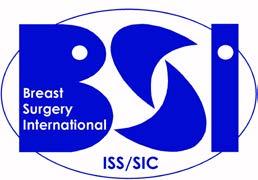
5 minute read
ISS/SIC President's Address
from ISS/SIC Newsletter May 2020
by International Society of Surgery / Société Internationale de Chirurgie
May 2020
International Society of Surgery (ISS) Société Internationale de Chirurgie (SIC)
Advertisement
ISS/SIC President’s Address
John G. Hunter, President ISS/SIC & Congress President ISW 2021
To all ISS Members
New cases of the novel coronavirus (now known as COVID-19) that emerged in the city of Wuhan, China in late December are growing along an exponential growth curve now spread around the world. According to the World Health Organization, nearly 27,000 people have died from the illness and over 600,000 infections have been confirmed in at least 199 countries, as of March 27, 2020. By the time that this note is published, these numbers may have increased as much as 100-fold, unless radical interventions are undertaken to bend the exponential growth curve.
It is with great pride that I look at how members of our organization and medical colleagues across the world have risen to this challenge, often placing themselves in harm’s way and working tirelessly to contain the effects, at all lev-
Petronas Towers in Kuala Lumpur (452 m height)

The ISS/SIC Council at the virtual March meeting
els. I also recognize the effect that this has on our families, loved ones, and the burden shouldered by our colleagues in allied professions including nursing. Many of our members are in the firing line, simply because of their age. The number of cases reported is rising exponentially in many countries, but at the same time the numbers are falling particularly in the Chinese and Asian countries who shouldered the initial burden of care. Of all the possibly effective measures, physical distancing (6 feet provides maximal protection) seems to be the most effective measure to combat the ‘surge’ of cases and deaths reported in China, South Korea, Iran, Italy, Spain and the US, most recently.
In Portland, Oregon I live close to one of the US “epicenters” of COVID-19 in the Seattle region. In our community, and in communities around the world, we are sheltering within our homes, only emerging for exercise (keeping a distance from others) and for food, pharmacy, and other essential needs. We have become familiar with video conferencing, and conference calls all day long. For those of us who engage in the care of patients, outpatient visits are increasingly becoming video visits. Nonetheless, some patient care and in particular surgery, cannot be done remotely. For frontline healthcare workers, safety and protection is paramount. Like many places in the world we have cancelled all elective surgery to improve the supply of personal protective equipment for workforce protection, and for urgent and emergency surgery.
Daily, with global research, we are learning more about the virus, how to minimize its effects, manage the consequences, and develop weapons to limit spread, increase effectiveness of treatment, and (hopefully) produce a vaccine in a timely fashion. Such vaccines are already under testing in the US, in China, in Korea, and elsewhere in the world. On the ISS/SIC website we have placed guidance from across the world in the management of these patients, and in the hope that it will assist surgeons in their decision-making.
Most likely, the global economic consequences of this pandemic will be longer lasting than the viral infection. It would appear that a global recession is here, and we need to be particularly mindful of the many individuals in our family, in our neighborhood and in our communities who will lose their jobs and have trouble making ends meet. Soon, they will need our collective economic assistance more than they will need our hospital beds. But for now, we focus on health and healthcare.
Some weeks ago, the ISS/SIC leadership cancelled our annual council meeting in Zurich. For the first time ever, we met very successfully by video conference, sprinkling our meeting times from 5 am to
the middle of the night on the west coast of the US (If only we didn’t have a past president in New Zealand…..or a current President in Oregon!). Despite the time differences, the meeting was remarkably successful and informative.
The officers of the International Society are grateful for your efforts so combat COVID-19, and to adjust to the economic impact of this virus, wherever you are in the world. Be strong, be safe, stay home, and thank you for what you are doing.
Kenneth D. Boffard, Secretary-General ISS/SIC
It was the best of times, it was the worst of times, It was the age of wisdom, it was the age of foolishness, It was the epoch of belief, it was the epoch of incredulity, It was the season of Light, it was the season of Darkness, It was the spring of hope, it was the winter of despair.
Charles Dickens, A Tale of Two Cities, 1859
I write this for the spring (in the Northern hemisphere) and the autumn (in the Southern hemisphere), I think the Dickens’ words from 160 years ago reflect our current state of the world. As our President articulates above, the world is in a state of anxiety and uncertainty not seen globally for decades. We are in a world dominated by social media, where news (fake and real) travels fast, optimism over large areas of the globe gives way to despair, and every advance real or imagined, is hailed as part of the answer. Sadly, this is associated with stigmatization by some communities, partner abuse under lockdown, massive markups on essential products such as masks, and hoarding of commodities, and a plethora of individuals selling “cures”. However, in some ways the world is a better place. Trauma is way down. In South Africa, the national road death toll for the Easter period last year, was 250. This year was 28. Most countries have seen a drop of up to 70% of the expected number of injuries. Air is cleaner, flamingos are returning to Delhi, deer (and at least one elephant), are seen in the streets of some cities, and dolphins in the canals of others. Individuals and communities are being brought closer to each other, relating to each other, supporting each other and working together for the common good, often despite harsh economic reality.
John G. Hunter President ISS/SIC & Congress President ISW 2021









